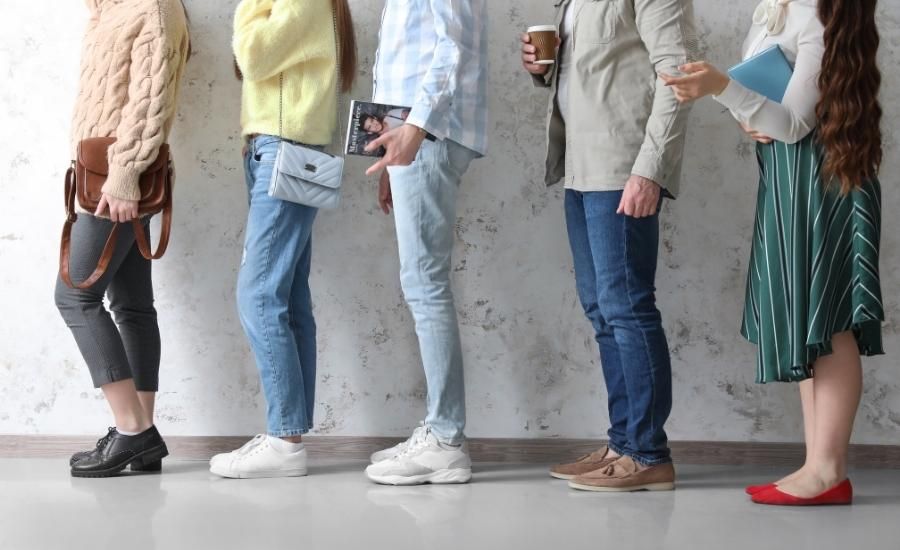I have no patience for anything anymore.
Oh, patience. One little word, so many thoughts around it. If you feel that your patience is running low day by day, then you need to keep reading
Patience, the ability to endure delay, trouble, or suffering without becoming visibly upset, is a virtue often lauded but increasingly challenged. People seem not to have patience for anything anymore and seek ways to calm down with every little thing happening around them.
In an era of instant gratification and rapid technological advancements, patience seems to be a resource that is being consumed faster than it can be replenished. Our world of on-demand entertainment, instant messaging, and same-day delivery grows our expectation of immediate results. This constant stimulation and accessibility, while highly convenient, it can inadvertently diminish our capacity for patience, and as a result, we feel frustrated, stressed, and overwhelmed when faced with inevitable delays or obstacles, which affects not only our mental health but also our relationships with the people around us. And this is why we need to learn how to practice patience and slow down a notch.
The first thing to remember is that patience is not simply passive waiting

Some of us confuse patience with waiting passively without taking action. However, patience is way more. In fact, it is an active process involving emotional regulation, cognitive flexibility, and a realistic appraisal of situations.
From a psychological perspective, patience is linked to a multitude of positive outcomes. Patience allows us to manage frustration and disappointment more effectively, minimizing the negative impact of stressful situations. Impatience, conversely, fuels anxiety and can lead to impulsive, often regrettable, reactions. When we are patient, we are less likely to make rash decisions driven by immediate emotional impulses. Patience allows for thoughtful consideration of options and potential consequences, leading to more informed and beneficial choices.
Patience is also our way to building and sustaining healthy relationships. When we are patient, we can navigate disagreements constructively, empathize with others' perspectives, and tolerate imperfections. Impatience, on the other hand, can lead to irritability, conflict, and strained relationships. Many worthwhile goals require sustained effort and perseverance. Patience allows us to stay focused and motivated even when progress is slow or setbacks occur. It boosts our resilience and increases our chances of achieving long-term objectives.
Research suggests a strong correlation between patience and overall psychological well-being. Patient individuals tend to experience greater life satisfaction, emotional stability, and a sense of purpose.
Why is our patience getting a hit?
There are several factors that contribute to the decline of patience in contemporary society, with social media and the constant influx of information playing a significant role. First of all, our culture is the one of instant gratification. As mentioned earlier, our environment is saturated with readily available rewards, conditioning us to expect immediate results. This can make it difficult to tolerate any form of delay or frustration.
Also, social media, which is an integral part of our lives, contributes to this lack of patience. Social media platforms are designed to capture and maintain our attention through constant notifications, updates, and a rapid flow of information. This bombardment of stimuli can shorten our attention spans and make it challenging to focus on tasks that require sustained concentration, thereby hindering the development of patience. The curated and often utopian portrayals of others' lives on social media can also fuel feelings of inadequacy and impatience with our own progress.
The modern world is rife with distractions
We are constantly bombarded with information vying for our attention; from smartphones to email notifications, which makes it difficult to cultivate the mental stillness and focus necessary for patience. Being constantly connected creates a sense of urgency and a fear of missing out on experiences or opportunities. This can lead to impatience and makes us feel rushed, even when there is no real need to hurry.
How to be more patient
The bad news is that trying to be patient can be pretty challenging. The good news is that it is achievable since patience is a skill that can be developed and strengthened through conscious effort. If you are ready to become more patient, try the following evidence-based strategies that work:
Mindfulness and meditation
Practicing mindfulness, through meditation or other techniques can help us become more aware of our thoughts and emotions, including feelings of impatience. We can learn to manage these feelings more effectively by observing them without judgment. If you are new to meditation, you can start with guided meditation and no more than 10 minutes per time. There are a lot of free guided meditation videos online, and the only thing you need is your headphones and a quiet place. You don’t have to spend much time on it, but you can increase it as time passes.
Cognitive restructuring
This involves challenging and changing negative thought patterns that contribute to impatience. For example, if you find yourself becoming frustrated while waiting in line, try reframing the situation as an opportunity to relax or engage in a positive activity, such as listening to music or reading. This way, you will not see such situations as a source of irritation but as a way to do something fun for yourself.
Engage in activities that require patience

One of the most effective ways to work with your patience is to engage in activities that naturally require it. Such activities could be gardening, knitting, or playing a musical instrument. These activities require effort and attention and do not always bring the best results (you need time to learn how to play a new song), so they are ideal for developing patience.
Set realistic expectations
Often, impatience arises from unrealistic expectations about how quickly things should happen, which can cause intense feelings of frustration and irritation. However, life is usually unpredictable, and we need to navigate it by being more flexible and accepting the fact that delays can happen. For example, if you are packed with meetings all day, make sure that you block some time for actual work so that you don’t end your day with a feeling of inadequacy.
 THE WORKING GAL
THE WORKING GAL





